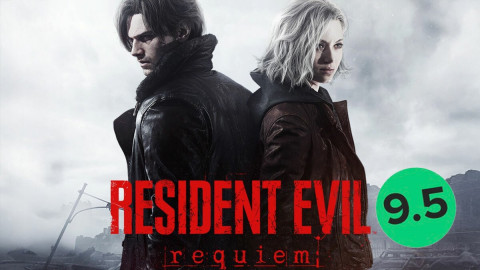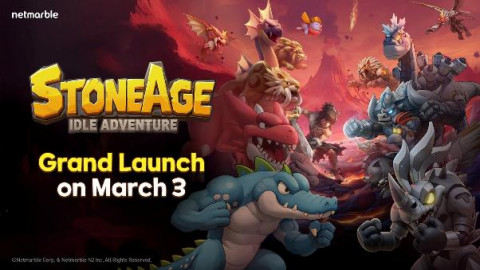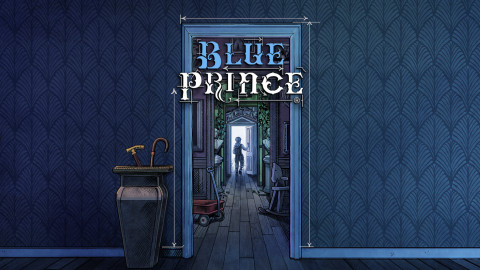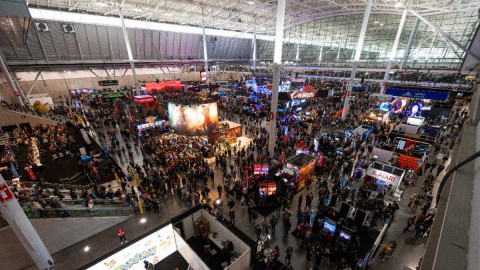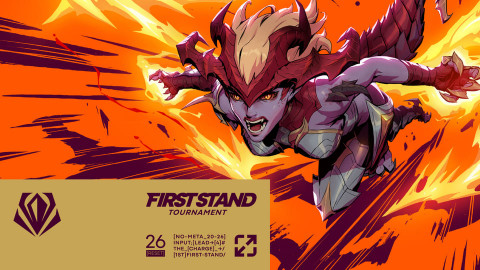
Since mid 2021, WeMade and their CEO Chang “Henry” Hyun-guk have been the talk of the town in the gaming industry. They went into the blockchain game industry along with the early adopters and made meaningful progress with their model, leading the new paradigm in the industry.
At GDC 2022, Inven met up with Henry to talk about how he and WeMade came to GDC.
It's the first time you’ve led a session at one of the biggest game conferences. How did it feel?
Everything is new — coming to GDC, participating in it, becoming a sponsor, giving a keynote speech — it’s all the first time for me. The many things we’ve done from last year brought us here, so it’s very meaningful.
The reason we’re here at GDC is clear. We wanted to show who we are to the foreign developers that don’t know WeMade, and we wanted to resolve the misunderstandings people have about blockchain-based games. I’m not sure yet if these were resolved yet, but seeing the seminar room packed full, I was sure that people were interested in us and what we had to say. That alone is a goal achieved.
Yesterday, WeMade hosted a party. How was it?
We prepared 150 seats and there were people who weren’t able to come because the seats were all filled. We were able to meet people in the IT industry who utilize blockchain technology, as well as people in the gaming industry. There were people from cryptocurrency exchanges too. We mostly talked about work and businesses, but we mingled as well. Meeting people who dream of a similar future as I was meaningful.
You seem to believe that blockchain-based games will be the future. Given there are many people that are skeptical about it, what keeps you so confident in that belief?
Three experiences gave me faith. First was the sharp rise of bitcoin since around 2017. Back then, many people discussed how bitcoin would fare, and at the time, I was one of the doubters. It seemed like a fraud: giving value to some data that doesn’t mean much. However, as a person that manages a gaming company, it was a concept worth thinking over, and as a result, I began to think that blockchain technology could go extremely well with games.
The second experience was Spielberg’s Ready Player One. Many people focused on VR devices and their utilization, but I saw something else. In the movie, people were doing various activities. The assets they earned through those activities were connected directly to the real economy and had practical value. Although it was something in a movie, I thought the same was possible in the real world, and blockchain technology was the way to do it.
The last was reading Yuval Noah Harari’s book. Yuval Harari wrote human history through several books and discussed the future of mankind as well. In his books, people don’t work in the future. Most work is done by AI while people gain basic income and enjoy their lives.
I empathized deeply with that, and I thought blockchain games could be the roots of the future Yuval described. One thing I didn’t think of was the timeframe. I thought it would take at least 10 years for blockchain games to settle properly, but it was faster than I thought. We were able to make it in three and a half years.
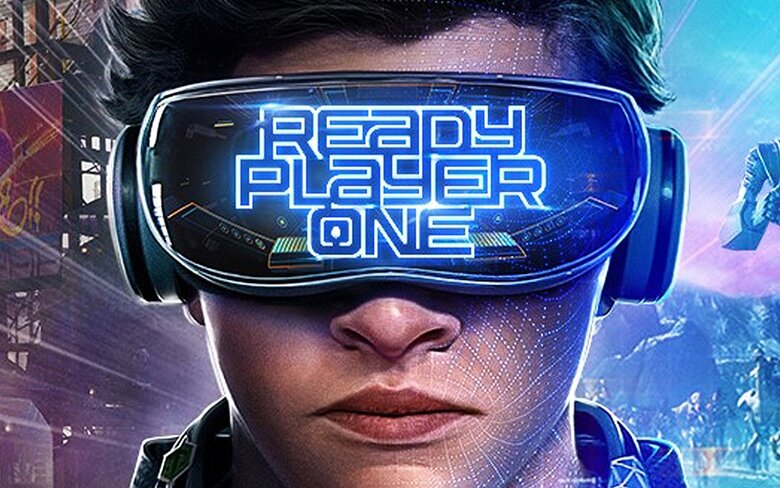
You talked about Ready Player One and also discussed the metaverse in your keynote speech yesterday. What’s the metaverse to WeMade?
The key point of the metaverse is two things: economy and identity.
A metaverse should have an economic system that’s connected directly to the real economy. For a metaverse to work properly as a world, the objects within the world need to have value, and in order to be exchanged, an economic system is necessary. But for it to actually mean something, it has to be connected to the real world.
In order to talk about identity, you need to understand the concept of metaverse, and to do so, you need to think about what’s the opposite. The opposite of metaverse is universe, and the universe is a world where I have my own identity. Most people in Ready Player One have a different name and shape from reality. That’s the identity in the metaverse.
Thinking this way, you can see the outline of what the identity looks like. A world where you can show a different version of yourself, a world where assets are connected directly to real-life assets. You can find this quite easily. Everything you need is in online games. All you need to do is connect the economic system to the real economy, and that can be done through blockchain games. Blockchain games are the metaverse WeMade thinks of.
Axie Infinity must be discussed when we talk about blockchain games. Since Axie Infinity is based on cryptocurrency, there are several economic communities. Do you think you’ll see the same with WeMix?
I thought there are were directions where blockchain-based games could go. I’m not trying to belittle Axie Infinity, but I asked many developers to play it while we were doing research, and every single one of them hated it. Most of those who don’t like blockchain games probably played a similar game and thought that was the standard.
On the other hand, Mir4 is aiming for something different. That’s why we’re trying to emphasize P&E (play and earn) instead of P2E (play to earn). We’re not playing “to” earn. It’s just that the world we play in is connected to the real world. If you play the game naturally and gain things, all of that could become assets, so you earn money. The growth of Mir4 is very healthy. Many companies create new cash items for sale, but Mir4 sales are growing steadily even without them.
P2E games where you have to play “to” earn are bad for the ecosystem. If the game isn’t fun and all that matters is earning money, it’s just another wall. People should invest if they want to earn money — why would they play a game that isn’t any fun?
Coming back to the question, as the platform grows, economic communities will naturally appear as our two expansion strategies pan out. The strategies are expanding DeFi [decentralized finance — Ed.] and the decentralization of NFTs. If all goes well, decentralized autonomous organizations that have NFT will appear, and those should be economic communities within the platform.

You emphasized that blockchains will make games more fun. In that regard, games that are already in service could be added to the WeMix platform. Have any gaming companies contacted you?
Of course. There are more live games that are being converted than new games. We’re thinking of providing new games next year or after that, and to settle well, adding original games should be better. From before, successful games weren’t always high-quality. Some games succeeded because they were timely. I believe WeMix has a great opportunity now.
The future we’re looking at is to create an inter-game economy among all those games. If someone makes a new game within the WeMix platform, that game belongs to the person who made the game, not the owner of the platform. If someone makes assets, the assets belong to the person who made them. If people gain items in a game and turn them into an NFT, it belongs to them. That’s the character of decentralization.
If more games join WeMix and more things appear, the positive cycle will accelerate. Mir4 users may decrease, but in the long run, it’s positive. Mir4 can make DRACO coins that can be traded into WeMix, so there could be many financial products and economic activities within the game. There are no technological or policy limitations. The blockchain ecosystem has so much potential.
I’ve heard that you’re developing a new main net. How are your relations with Klaytn?
Another characteristic of blockchains is that you don’t need permission to upload something on a cryptocurrency platform. We just need to build the bridge. Kleva runs based on Klaytn, but if we want to do something with let’s say Ethereum, we just need to lay down a bridge where it’s connected to Ethereum.
Our business has been expanding quickly, so we need a wider field, so that’s why we need a new main net. It’s not that we break relations with Klaytn and move over. After all, the WeMix scattered on Klaytn isn’t ours, it’s owned by the users, we can’t move it around even if we wanted to.
We just need a new main net to do bigger things. I’m sure that we can make a competitive main net. Two things are needed to make a main net: technology and application. Blockchain technology isn’t an area that’s too difficult. A capable developer can make one right away. The problem is that no one will buy it since it’s not useful. That’s why you need an application, and we already have that. We have enough resources as well.

WeMix holders are interested in DeFi services. Are you preparing any other services besides Kleva?
First, farming on Kleva will be available within March. We’re at the last QA stage. Most DeFi providers are startups or venture companies. Compared to them, our review system was much better. Even so, it took a long time to test and verify since we wanted to avoid any dangerous situations. When a service is created at a rapid pace, usually something’s left out. There are some DeFis that take responsibility, but we’re not like that, so to minimize any risks, we needed more time.
We’re also preparing lockup staking. We’re considering a DeFi service utilizing stable coin. The direction we’re aimed at is benchmarking original products while making it possible to create new services. I believe we can make most of the real finance products. The lockup staking service is being inspected right now, it might be available in April.
Since WeMix's rise, many companies have been creating similar ecosystems. What do you think about that?
Some technologies aren’t very difficult, but the experience of operating the technology is very important. AI and blockchain are good examples. Tesla, for instance. Coding autonomous driving AI isn’t that difficult, but you need time for that AI to learn things through tests. It’s like a war of data, but it’ll be difficult for later starters to catch up with Tesla’s 10-year experience.
We’ve already been in the blockchain industry for four years, and it’ll probably be difficult to catch up with us as well. It’s an area where you have to take adventures and experience failure. We probably failed the most times. I don’t think they can rise to become a competitor – even if they were to grow quickly, I don’t think it’ll be possible in the near future.?
You have been saying that you want to resolve any misunderstandings. What are your strategies to do so?
I think the misunderstandings in the Korean gaming industry have been resolved already. Everyone’s going this way. When we plan strategies, we need to be confident, and to have confidence, it means we saw the essence. However, the gamers’ misunderstandings probably haven’t been resolved yet, since our games aren’t provided in Korea yet, and they haven’t had the chance to play them.
It’s the same with the global gaming industry. The Chinese gaming industry is familiar with Mir’s IP, and since Axie Infinity was popular, it’s more open. However, there haven’t been many announcements regarding Mir4 so we need to gain more recognition.
I want to fix the thought that “blockchains ruin games”. This is the biggest misunderstanding. It’s completely not true that blockchains ruin the purity of the game, and that the games aim for money more than fun. Of course, we could make those kinds of games and there are games like that already, but all those games were always criticized.
On the other hand, do you think it’ll be not fun if you add blockchains to a great game? I don’t think so. In the worst-case scenario, it’ll maintain its position. The game’s repertoire won’t change, and the nature of the game will be the same. It’s just that some database in the game will have value and the ownership of that database will be transferred to individuals.
In a few years, I believe the term “blockchain game” will disappear. If something succeeds big, people tend to forget that word. Nowaday online games don’t emphasize that they’re free to play anymore – that’s like the default of online games now. One day, blockchain games will become the default. That’s why I can continue moving in that direction and that’s why I’m here.

This article is part of sponsored coverage by WeMade.
Sort by:
Comments :0





